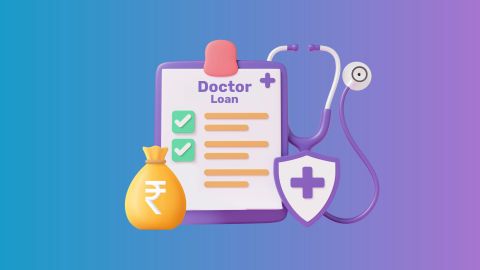Continuing Professional Education plays a crucial role in ensuring Certified Public Accountants remain competent, relevant, and trusted in a rapidly evolving business environment.
- Maintains professional competence: Ensures professionals keep pace with evolving industry standards, laws, and technologies, enabling them to provide accurate and timely advice.
- Supports quality of service: Equips Certified Public Accountants with up-to-date knowledge so they can address complex, high-impact business issues for clients and stakeholders.
- Improves career opportunities: Enhances skills and expertise, leading to better job prospects, career advancement, and greater recognition within the profession.
- Ensures compliance: Meets the requirements set by professional bodies and regulatory authorities for maintaining certifications or licences.
- Enhances client trust: Reinforces credibility, as clients value professionals committed to continuous learning and high service standards.
- Encourages personal growth: Broadens professional knowledge and fosters confidence in decision-making, particularly in a fast-changing global business environment shaped by technology and regulation.
Types of Continuing Professional Education (CPE)
Formal / Structured (Planned Learning)
- Training courses (in-person or online), workshops, seminars, webinars.
- Conferences, symposiums, and professional licensing courses.
- Academic or degree programs.
Informal / Self-Directed (Self-Initiated Learning)
- Reading books, articles, or industry journals.
- Volunteering, doing research, writing articles, or giving presentations.
- On-the-job learning like job shadowing, mentoring, or coaching.
Reflective / Passive (Learning by Watching or Listening)
- Watching training videos, tutorials, or recorded lectures.
- Listening to podcasts or studying case studies.
CPE Governance - NASBA and AICPA
Certified Public Accountant (CPA) designations in the United States are issued at the state level, not nationally. This means CPAs must follow the specific standards and requirements of the state where they are registered. While NASBA represents the interests of state-level boards, AICPA focuses on supporting individual CPAs.
NASBA (National Association of State Boards of Accountancy)
- Supports the 50+ state-level CPA boards by improving their effectiveness and advancing shared goals.
- Promotes reciprocal recognition of CPA designations between states.
- Offers a platform for state CPA organisations to collaborate on important professional matters.
- Acts as a unified voice for state boards in dealings with U.S. government agencies.
- Maintains the official registry of CPE sponsors, which many states use to approve continuing professional education providers.
AICPA (American Institute of Certified Public Accountants)
- Represents over 400,000 individual CPAs across the United States, with membership being optional.
- Sets ethical standards for the accounting profession.
- Develops auditing standards for use by companies, governments, and organisations.
- Creates and grades the Uniform CPA Exam.
- Offers specialised credentials in areas such as financial planning, forensic accounting, business valuation, and information management.
Requirements for general CPE
For AICPA members, the CPE reporting period begins on January 1 of the first full calendar year after membership starts. As per AICPA guidelines, CPAs must complete a minimum of 120 hours of continuing professional education within each three-year reporting cycle.
Specific CPE requirements can vary by state, so it is advisable to review the NASBA website for detailed state-level regulations.
CPE credits for approved programmes are calculated as follows:
- 50 minutes of participation equals 1 CPE credit.
Qualifying programmes for earning CPE credits
CPE credits must be earned through recognised programmes designed and delivered by qualified professionals. These should enhance a member’s skills and be formally structured. Examples include in-house training, university courses, conferences, trade shows, and e-learning platforms.
How to earn continuing Professional Education (CPE) credits?
CPE credit requirements differ depending on the certification. For instance, professionals holding ISACA credentials such as CISA, CISM, CGEIT, or CRISC must complete 120 CPE credits over three years, with at least 20 credits each year. These can be earned through:
- Attending ISACA conferences (up to 32 CPE)
- Participating in webinars or online training (up to 36 free CPE per year)
- Completing on-demand courses (up to 28 CPE per course)
- Joining skills-based labs (up to 32 CPE per lab)
- Volunteering (up to 20 free CPE per year)
After earning credits, professionals must log in to their ISACA account to report them.
Similarly, ISC2 requires CPE completion within a three-year certification cycle, with credits submitted via its CPE portal. Requirements vary by designation. For example, Associates need at least 15 CPEs annually from Group A, while CISSP holders require a minimum of 40 CPEs per year and 120 over three years from Groups A and B combined.
- Group A CPE credits are earned from domain-specific activities such as reading white papers, publishing articles, attending or teaching courses, preparing presentations, working on unique projects, studying for exams, volunteering in relevant sectors, or pursuing higher education in the field.
- Group B CPE credits come from general professional development, including attending conferences, preparing lectures, or volunteering as a trainer.
Continuing Professional Education (CPE) compliance
CPE compliance means completing regular learning (both structured and self-directed) to keep professional certifications valid, stay updated with industry standards, and follow rules set by organisations like AICPA, ICAI, NASBA, or ISACA. This usually needs to be done within a specific year or multi-year period. Failing to comply can result in penalties or suspension of professional status.
Record documentation and CPE evidence
CPA members must take responsibility for maintaining accurate records of the CPE credits they earn. This involves keeping proper documentation that confirms participation in and completion of recognised learning activities.
The standard unit of measurement is one CPE credit, equivalent to 50 minutes of programme time. While tracking and reporting credits is important, the AICPA emphasises that the primary objective should be enhancing knowledge and skills, rather than simply meeting the credit requirement.
Keeping these records is essential, as members may need to provide proof of their continuing education to regulators or other organisations. The AICPA advises retaining documentation for a minimum of five years after completing the programme.
Acceptable evidence may include:
- A certificate of completion from an approved CPE provider
- A certificate showing successful completion of all required assessments in a self-study programme
- Academic transcripts or grade records issued by a university
Further examples of acceptable documentation are available on the NASBA website.
Conclusion
Continuing Professional Education is essential for staying relevant and competitive in a fast-changing professional landscape. For chartered accountants, maintaining updated knowledge can improve client service and ensure compliance with industry regulations. If you are looking to invest in your professional development, financial assistance through a CA loan can help you manage training costs with ease. You can also explore options based on the CA loan interest rate that suits your budget. Alternatively, a professional loan can provide funding for skill enhancement, certifications, and career growth.





